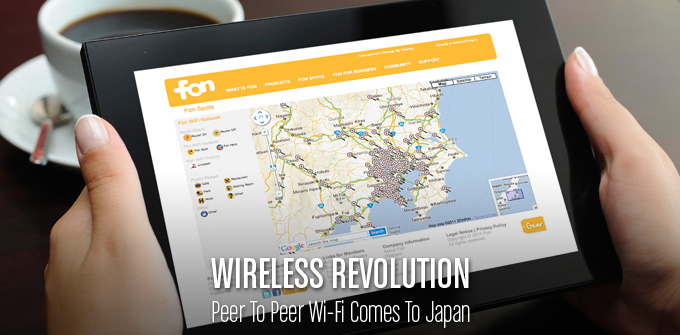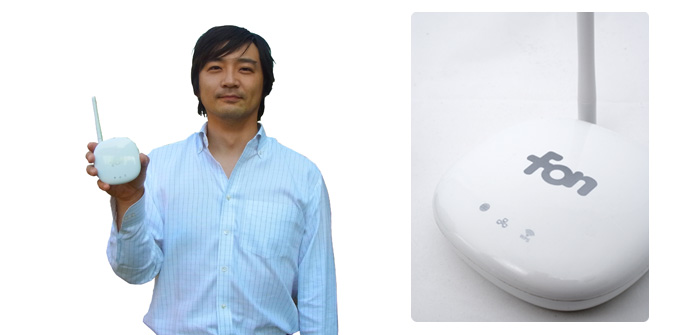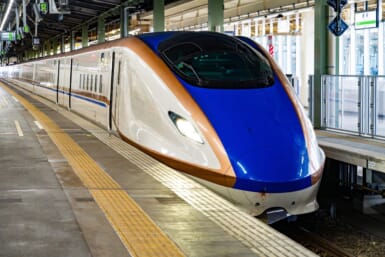Japan is synonymous with high technology. The very mention of Tokyo conjures up images of bullet trains, skyscrapers, electronic billboards and gadgets galore, yet strangely, the one tech area Japan is lacking in is wireless internet access.
In many parts of Europe and the United States, free Wi-Fi is practically ubiquitous in coffee shops, hotels and even in the street. In Japan, however, the story is very different; Wi-Fi is rare, even in central Tokyo.
High profile companies like McDonalds and Starbucks do offer some Wi-Fi services but they are neither free, nor easy to access and some involve additional subscriptions on top of standard cell phone charges.
Most smartphone and tablet users are stuck with often sluggish 3G networks or are limited to local Wi-Fi at their office or home. Madrid based internet start-up, Fon (pronounced phone) is planning to change how internet users access data with a revolutionary new peer-to-peer Wi-Fi sharing service, and they want us Tokyoites to join them.
“With FON, the community’s own members are the ones who lay the foundations for Wi-Fi coverage. This is what we call user generated infrastructure.” explains Martin Varsavsky, FON founder and CEO.
Fon users (or Foneros) pay a monthly fee for a palm size Wi-Fi router, so far, so normal but the radical difference with Fon is in the size and power of the network. Foneros share a small portion of their Wi-Fi signal with other Fon users, in effect creating a vast wireless network that not only covers Tokyo but in theory, the whole world.
“As Wi-Fi users, we thought that it would be fun to turn a router, which is a piece of equipment most people don’t pay any attention to, into a FON Social Router, a real communication tool that allows you to share and socialize at all levels,” Varsavsky says.
The genius of the Fon business model is that users do not even notice when other people are using their router, as only a tiny proportion of the signal is shared. The Fon router uses two Wi-Fi signals, one private (and encrypted) and one public, which is accessible only to users and is password protected.
This network offers Foneros the chance to access reliable wireless internet anywhere there are other Fon users. So far, that means hundreds of locations in Tokyo and at an incredible four million “hotspots” across the world.
“Four million hotspots is an amazing figure and proof that the Fon model works. Together with the spike we are seeing–one million new hotspots this year alone–the Fon network is achieving the footprint and rapid growth we have dreamed of.” said Varsavsky.
Wherever you are the chances are Fon Wi-Fi is there too, on a practical level this means that users will never have to worry about internet access when traveling abroad (or out and about in Tokyo), all thanks to an invisible network of fellow Foneros.
Fon’s wireless network works with smartphones, tablets, laptop computers and games consoles in cafes, restaurants and hotels. It’s a simple and powerful idea that could revolutionize the way people think of wireless internet, and like any peer-to-peer network, the more users there are, the better the network coverage is.
Munekazu Mashima, COO of FON Japan lead a tie-up partnership with Softbank, Japan’s one of the largest mobile carrier ensuring Fon receives high visibility and credibility on the high street. With more mobile users accessing content via Wi-Fi the deal also means stress on the already struggling 3G network is reduced, which is great news for carriers like Softbank.
“As many more people purchase tablets and smart phones in the coming year, and as operators choose Fon Wi-Fi to offload the fifty-fold increase in data traffic these users are expected to generate by 2015, we expect our community to continue to grow with no end in sight.” said Varsavsky and Mashima from FON Japan.
How does Fon work?
Users buy a Fon router and pay a monthly subscription. Users share their Wi-Fi signal in return for using other Fon hotspots.
Where can I use Fon?
At hundreds of locations across Tokyo and millions around the world (See website for details).
What devices are compatible?
Smartphones, tablets, PC’s, laptops, games consoles.
Is it secure?
Fon users have a private signal and a password protected user only network.
Learn more about Fon: www.fon.com/jp











